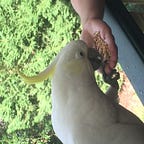Making ethical decisions is as easy as buying a coffee
I love coffee. My family loves coffee. My friends love coffee. It would be easier to list the people in my life that don’t love coffee. And as anyone who loves coffee or knows someone who loves coffee will tell you, it requires some effort to find your regular coffee haunt. Even worse is finding a great coffee in a new area. Where should you try first, where do the locals drink, do the locals really know their coffee? There is nothing worse than going out on the weekend for that first coffee and ending up with an over-steamed, burnt coffee. Yet hitting the jackpot can make the angels sing, the sun shine brighter and the whole world seem like a better place.
There are two ways I find out where great coffee is made, depending on the situation. If I am moving somewhere new where I will be having coffee over and over, like a new home or workplace, I need to find a ‘regular’ coffee house where I can get great coffee consistently. There are three things that I will do; firstly, look up online for reviews about where the best coffee is in the area; secondly, ask people around where the best coffee is – colleagues, neighbours, online communities, and finally, I will try a few different places. Once I have done this I will usually settle on a single place that I will return to religiously (with coffee as my chosen deity) until (or unless) the quality fails and then I will try some more.
The other way is I chose is when I am going out on the weekend to a new area. This is more simple as I will go online and research foodie reviews, personal reviews and community groups for views on the best coffee. I then need to make a choice and hope for the best, but typically the hive mind is reliable and delivers me a great coffee.
Great, we now know how to find a good coffee place. Hardly rocket science, but what does this have to do with ethical purchasing decisions?
Like finding coffee, ethical purchasing decisions are not rocket science and can be quite simple. Most of our purchasing decisions fall into the two broad categories of my coffee decision – regular choices or purchases and infrequent or one-off purchases. Think groceries, clothes, dining out, transport and yes, coffee. Infrequent purchases are things like cars, televisions, electronics and housing (even choosing a rental is a purchasing decision).
For regular purchases, the process is largely the same – research, research and try. Taking vegetables as an example, there are actually a number of factors that could be considered in the purchasing decision. Who is selling – big chain, local shop or direct from the producer? Is the vegetable in season locally – if not, what has been done to store or transport the vegetable to have it in stock? Transport – how far has it travelled to get to you – from another country requiring significant shipping (and emissions) or just down the road from the farm? What are the farming methods like – heavy use of pesticides and chemical fertilisers or organic? What are the employment conditions like for workers all along the supply chain? Are the producers being paid a fair price for their product or are middle-men taking all the profits? And then of course, you try the product.
Much like the regular coffee shop decision, once you have made your choice you can stop making a decision until new information comes to light – a better ethical product or a shift in the ethics of the product you are using. It seems like a lot to think about, but once you have made your informed decision and found your choice, it becomes second nature. Given the number of products we regularly use and how full a shopping trolley can be, start with a small number of your products, make your choices then move onto the next. In no time at all you will have a trolley full of good decisions.
For your infrequent or occasional decisions, again follow the same research process as you would for a one-off coffee (or other) decision. Do your research. If you are looking for a place to go for the weekend you will research location, reviews, availability and so on, spending a little time on the ethical side – sustainability, green credentials, social impact – won’t add significantly to the work. Remember too it isn’t all about maximising the ‘ethical’ benefits, but about making more informed decisions. For some this will be seeking out the most environmentally positive place and for others it will simply be somewhere that is considerate about its environmental impact.
Ethical purchasing decisions needn’t feel like an added chore or just too much work. We already make decisions and by utilising the same frameworks we can add the ethical element to our decision making. It isn’t about shifting overnight to a purely ethics driving purchasing pattern, rather about making changes in our thought processes which will improve our decision making over time. Small choices, small changes will lead to a big impact if we all get on board.
